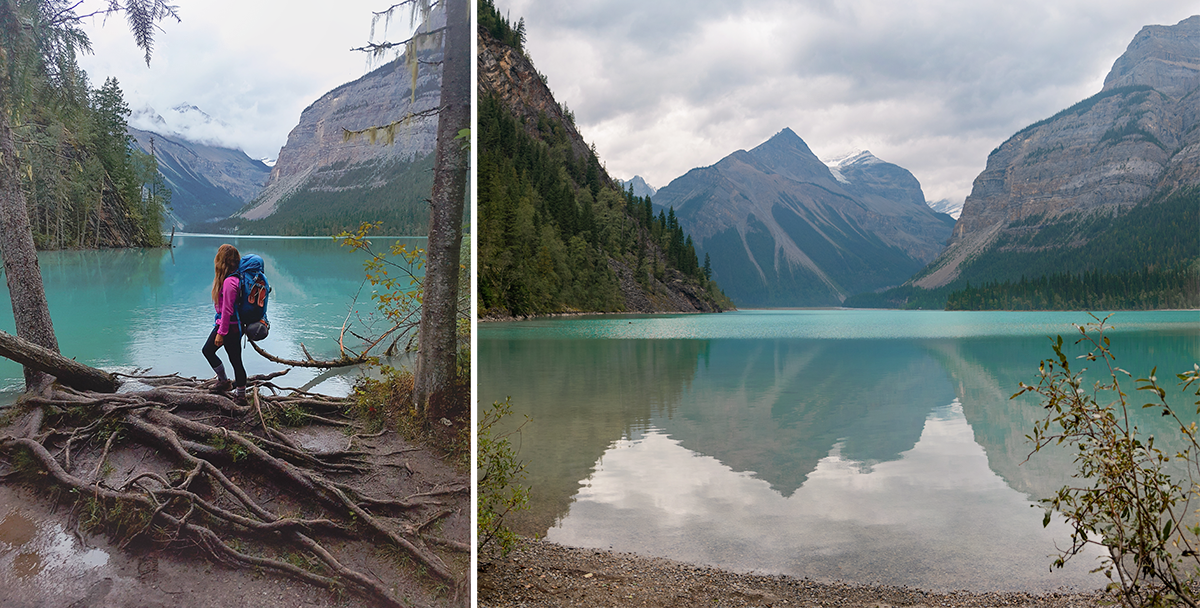
The Berg Lake Trail in Mount Robson Provincial Park is an extraordinary hiking and backpacking destination that makes “best hiking and backpacking” lists time and time again – and for very good reason.
Located west of the BC/Alberta border, this bucket list addition of moderate difficulty offers some of the Canadian Rockies’ most spectacular scenery. The trail meanders around the base of Mount Robson, which (at 12,972 feet) is the highest peak in the Canadian Rockies. It’s so big, in fact, that it creates its own micro-climate!
If you’re into big, bold, breathtaking mountain scenery – keep on reading!
Planning your Berg Lake Trail hike
How to reserve Berg Lake Trail in Mount Robson Provincial Park
Campground reservations for each season become available on October 1 of the prior year (for instance, on October 1, 2018 reservations opened up for the 2019 hiking season).
To book your reservation on the Berg Lake Trail, visit www.discovercamping.ca (web) or https://discovercamping.ca/Mobile/ (mobile). Reservations can be made online 24 hours/day.
For an additional $5 surcharge, you can also call the call centre (toll-free from Canada/US: 1-800 689-9025, or 1-519-826-6850 for international). They are open from 7:00 AM to 7:00 PM (PST) 7 days per week (including holidays, with the exception of Dec. 25 and Jan. 1 when the call centre is closed.)
Booking Tip: Reservations for long weekends fill up FAST, as do the majority of dates in July and August. Prepare ahead of time and get your reservation in early so you’re not disappointed!
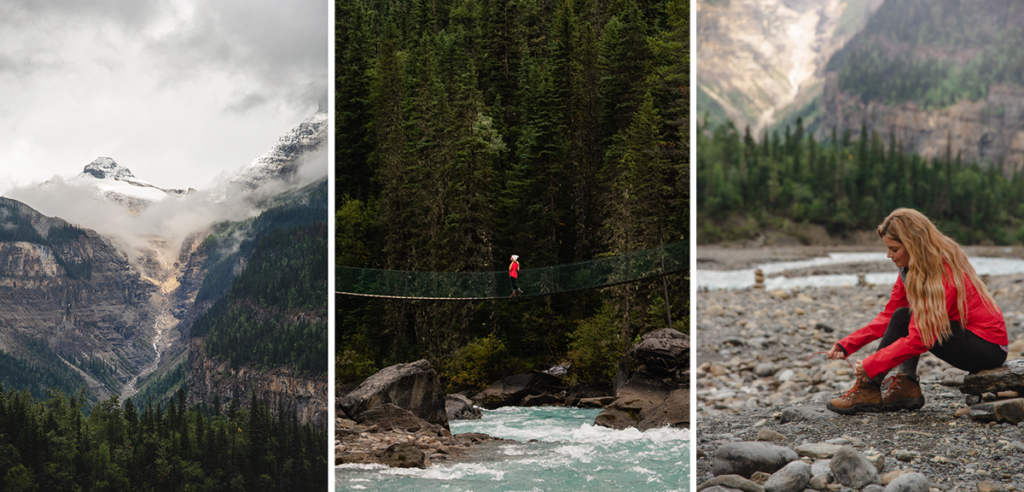
Choosing your campgrounds along the Berg Lake Trail:
There are seven campgrounds along the Berg Lake Trail in Mount Robson Provincial Park; therefore, a multi-night backpacking trip to Berg Lake is relatively easy to plan.
Each campground offers reservable tent pads, which will fit a single tent up to 10’ x 10’. The cost to reserve is $10/person/night. Each tent pad reservation also comes with a non-refundable charge of $6 (+tax) per night, up to a maximum of $18 (+tax). Tent pad assignment is first-come first-serve.
Tip: Make sure to carry as lightweight a tent as possible to make the backpacking portion of your trip more enjoyable. Click here for my entire guide to the 2019 Best Lightweight Backpacking Tents (1-2 lbs).
The seven campgrounds along the trail are (in order):

- Kinney Lake – 8 reservable sites, 7 km from trailhead, has a shelter
- Whitehorn – 14 reservable sites, 11 km from trailhead, has a shelter
- Emperor Falls – 4 reservable sites, 16 km from trailhead, has no shelter
- Marmot – 4 reservable sites, 19 km from trailhead, has no shelter
- Berg Lake – 20 reservable sites, 21 km from trailhead, has a shelter,
- Rearguard – 2 reservable sites, 22 km from trailhead, has no shelter
- Robson Pass – 4 reservable sites, 22 km from trailhead, has no shelter
Please note: There are very few facilities along the Berg Lake Trail. Each campground above offers bear proof food storage lockers, pit toilets, washbasins and grey-water pits. However, there are no showers, no flush toilets and no fires allowed (camp stoves are mandatory for cooking).
Click here to learn more about each of the campgrounds in Mount Robson Provincial Park
Trail Maps and Campground Map for Berg Lake Trail:
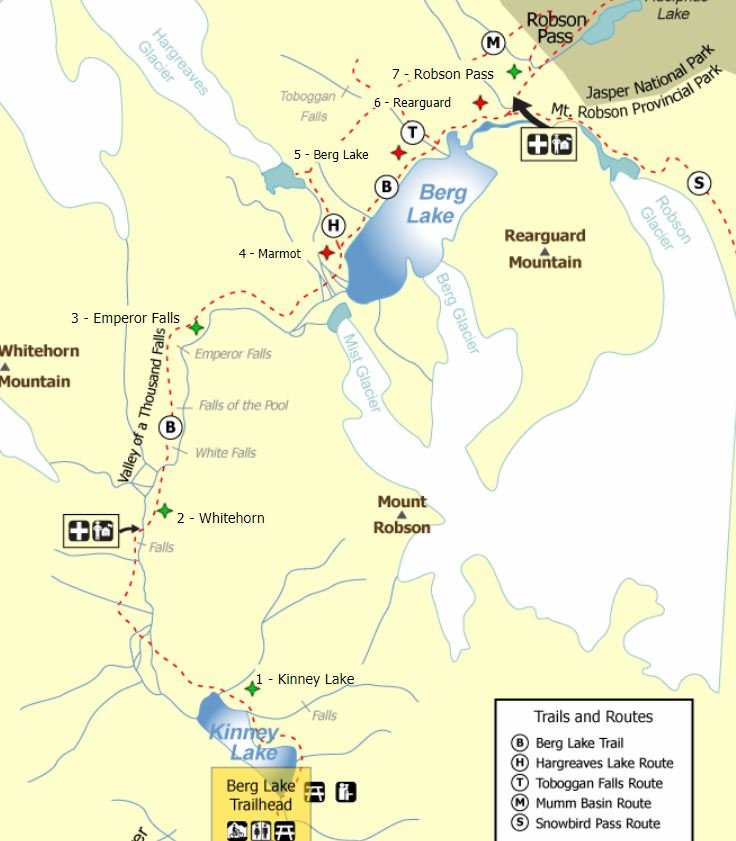
My campground recommendations:
3-night trip: Whitehorn Campground (11km in, the “halfway point”) for your first night, then Berg Lake for an additional two nights, which will give you adequate time to explore the many trails past Berg Lake. If you need to get a later start, book Kinney Lake for your first night (a short 7km hike in), then make the push all the way to Berg Lake on your second day. The majority of the elevation begins after the Whitehorn Campground, so either option will ensure you are rested and have fresh legs for the elevation gain on your second day!
2-night trip: A two-night trip is still possible with either option by cutting down your stay at Berg Lake Campground to just one night (you just wouldn’t have quite as much time to explore around the area).
1-night trip: We met some people who had hiked all the way in to Berg Lake Campground on their first day, stayed one night, then hiked out the following day. I don’t recommend this as there is plenty to see that requires more time to “do it right”, but it is technically possible to do this as a 1-night trip, or even a day trip.
 General Information
General Information
When to hike the Berg Lake Trail:
The Berg Lake Trail is best hiked between June and September. Any earlier or later and you risk running into lingering (or new) snowfall – though, in the Rockies, snow can happen during any month, especially at higher elevations.
Distance and Elevation Gain:
You will gain just under 800 meters total over the 21 kilometer hike to Berg Lake.
Here’s a handy illustration of the elevation profile to each of the campgrounds. The majority of the elevation is gained after Whitehorn as you make your way to Emperor (with a total of just over 500 meters gained over approximately 5km)

Before You Go – checking in:
Before departing on the trail, all campers must check in at the Mount Robson Visitor Center in Mount Robson Provincial Park during the below operating hours. You will be instructed to watch a video and listen to a talk by a staff member.
Visitor Center location:
May 10 to June 14 – 8am to 5pm
June 15 to a day after Labour Day – 8am to 7pm
A day after Labour Day to Sep 30 – 8am to 5pm
Oct 1 to a day after Thanksgiving Day – 9am to 4pm
Dogs on the Berg Lake Trail:
Dogs on leashes are permitted on day trips along the Berg Lake Trail, but dogs are not allowed on overnight trips.
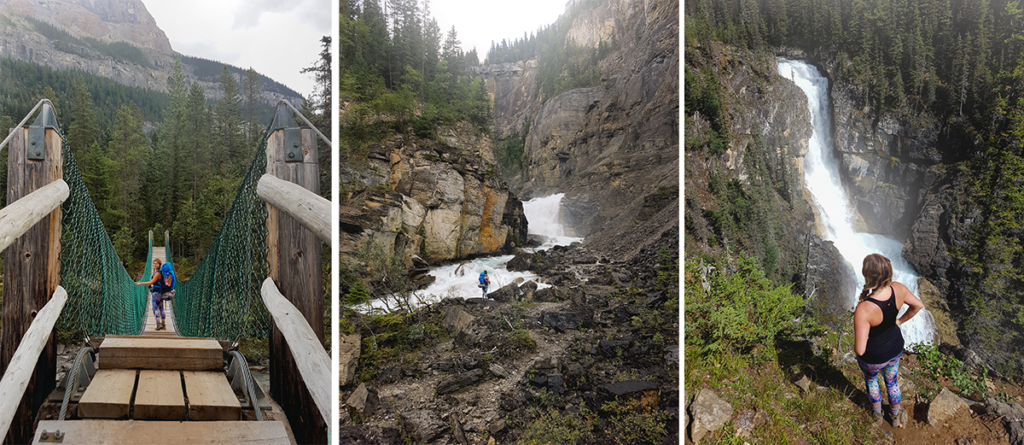
The Views on Berg Lake Trail
The views throughout the entirety of the Berg Lake Trail are absolutely mind-blowing; refer to the following photos for just a few examples of the types of incredible landscapes you will experience on this hike.
As you make your way around the base of spectacular Mount Robson, you will hike past lovely rivers, suspension bridges, beautiful valleys framed by towering mountains, and waterfall after majestic waterfall. There is even an area on the trail aptly known as Valley of a Thousand Falls, located on the stretch between Kinney Lake and Berg Lake, and you’ll very quickly begin to understand the name as you explore this area!
Make sure to stop off at Emperor Falls on the way – it is an overwhelmingly beautiful sight.
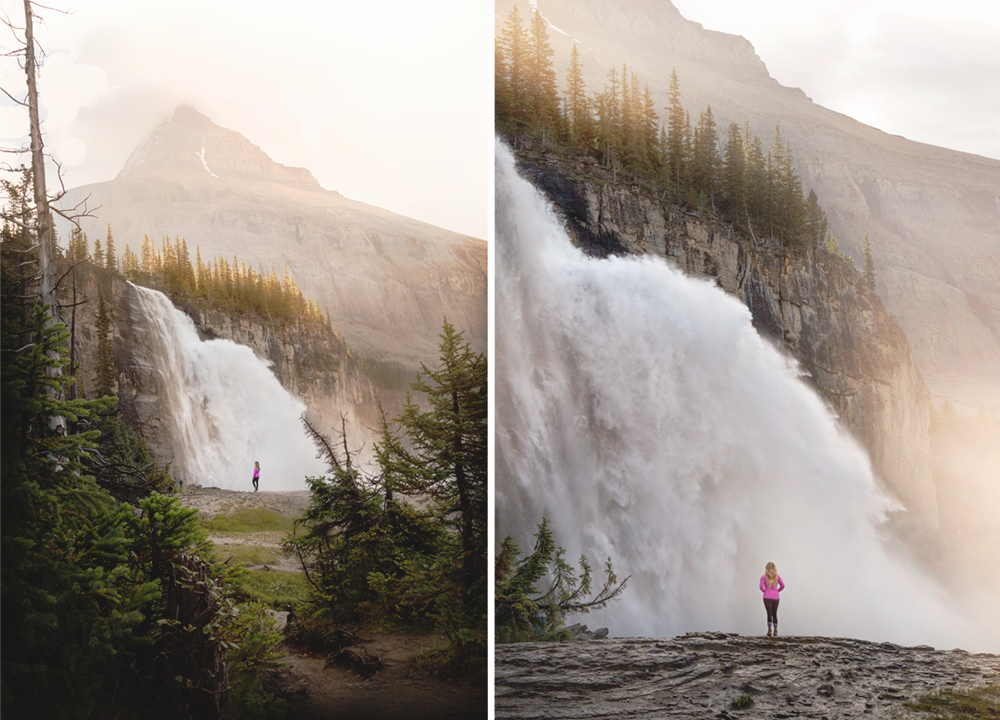
And there are, of course, various stunning perspectives of Mount Robson offered across the majority of this trail (see images below).

The crown jewel in Mount Robson Provincial Park is Berg Lake itself, a turquoise-blue glacier lake where you can relax on the large lakeshore in solitude and even hear the Berg Glacier calving into the lake from your nearby tent.


Once you arrive at Berg Lake, you may be tempted to spend a couple of days just relaxing and drinking in the incredible scenery. Or, you may want to explore further. There are plenty of additional add-on hikes from here, so keep on reading!
Additional Hiking Routes along or from Berg Lake Trail
(borrowed from the BC Parks website):
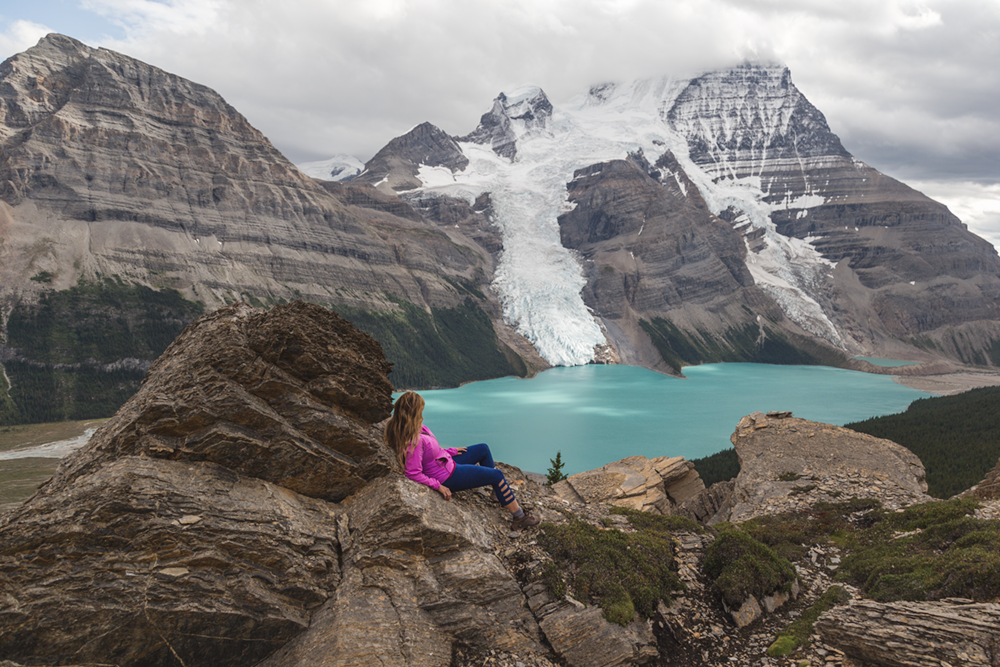
Hargreaves Lake Route (1/2 day):
From Marmot campsite near Berg Lake, this route climbs to Hargreaves Lake and Glacier. From the viewpoint, the trail continues and crosses the Toboggan Falls Route on course to the Mumm Basin.
Toboggan Falls Route (2 hours, return):
From the trailhead at the Toboggan Creek bridge near Berg Lake campsite, the trail climbs to Toboggan Falls and the surrounding alpine basin. This route intersects the Hargreaves Lake and Mumm Basin routes. Continue up beyond this junction for an extra 45 minutes and you will reach a small cave.
Mumm Basin Route (1/2 day):
A steep alpine trail leads to views of the alpine lakes, mountains and glaciers. The trail can start or end in Robson Pass or Berg Lake campsites.
Snowbird Pass Route (1 day):
Snowbird Pass is closed May and June due to caribou calving. A challenging route marked by rock cairns (caution required), it provides spectacular views of the back of Mount Robson. From berg Lake campsite the trip is 22 km, return. Start north of Rearguard campsite, follow Robson River then travel up to Robson Glacier’s moraine. Hike up to an alpine meadow, beyond which is Snowbird Pass.
There are other extensive hiking routes throughout Mount Robson Provincial Park.

Hiking out of Berg Lake:
After your amazing couple of days exploring around Mount Robson Provincial Park, you should plan to set off early on your return. If you’re feeling up to it, you can tackle the return trip back all in one day. It should take anywhere from four to seven hours, depending on your speed and how often to you stop.
The trip back is (mostly) all downhill, and your backpacks will be lighter with the food you have consumed. (If you’d like to break the return trip up, stay overnight at either Whitehorn or Kinney Lake campgrounds).
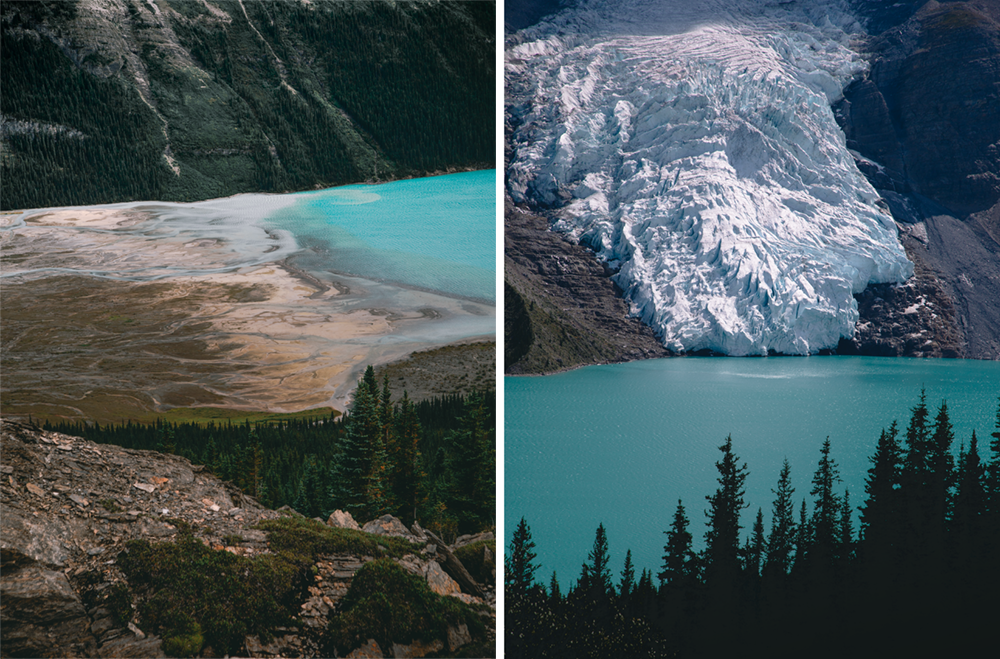
 PIN FOR LATER
PIN FOR LATER
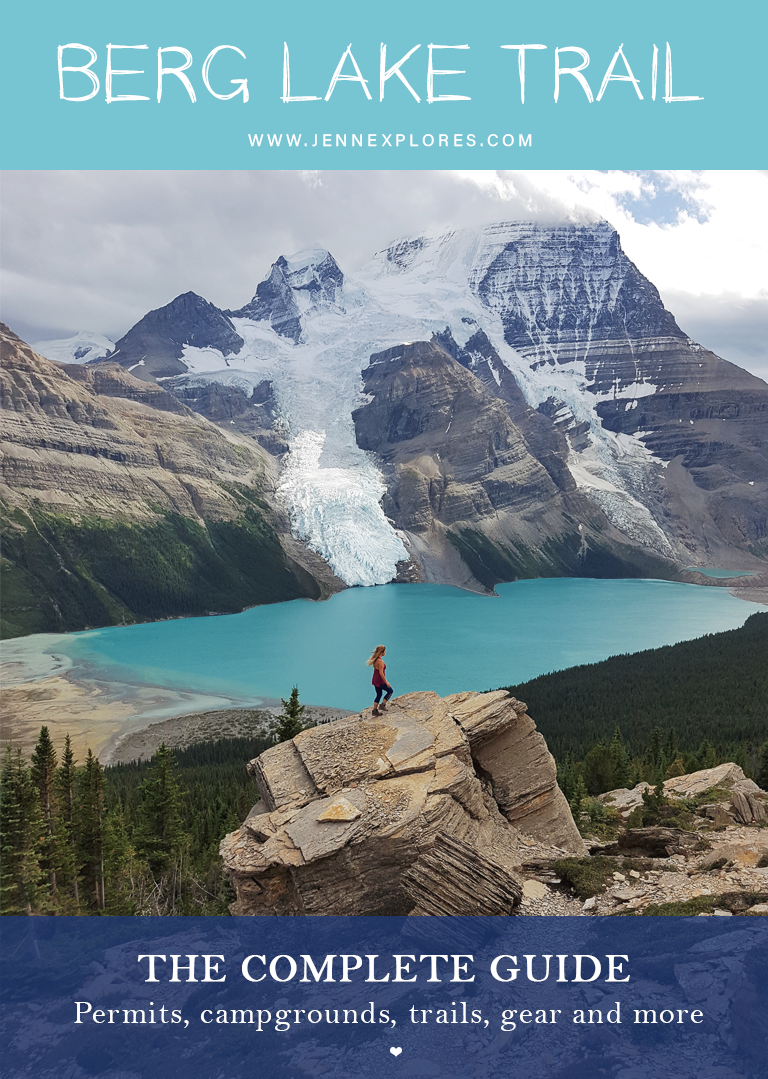
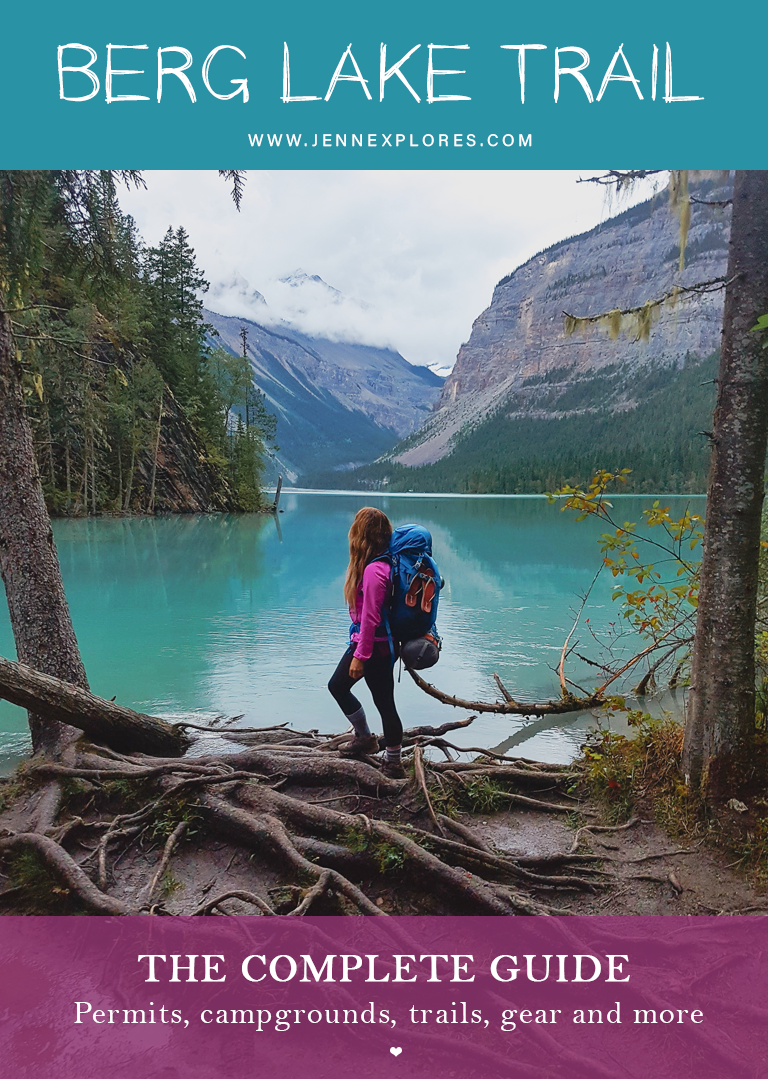
![]()
Have questions for me about Berg Lake Trail, Mount Robson Provincial Park or other locations in Jasper and area? Have feedback on this blog post? Please feel free to shoot me a comment below; I would love to hear from you!

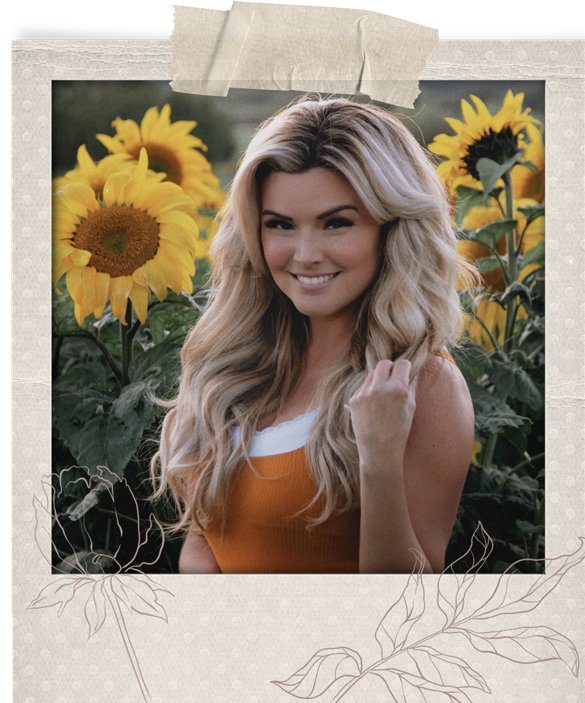

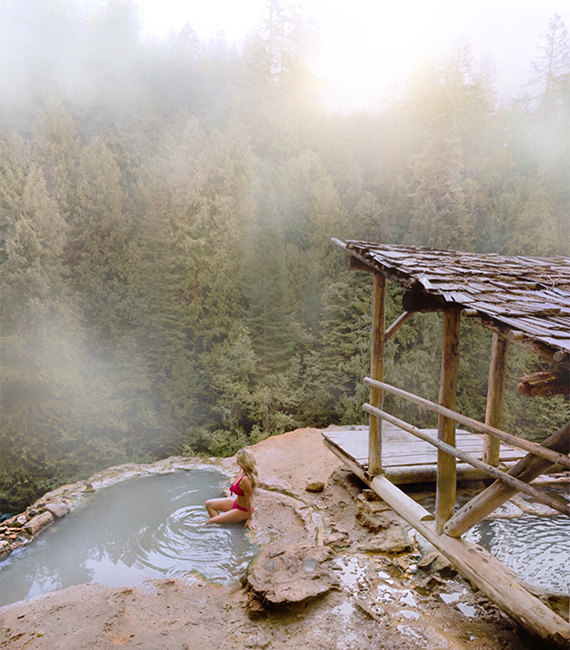




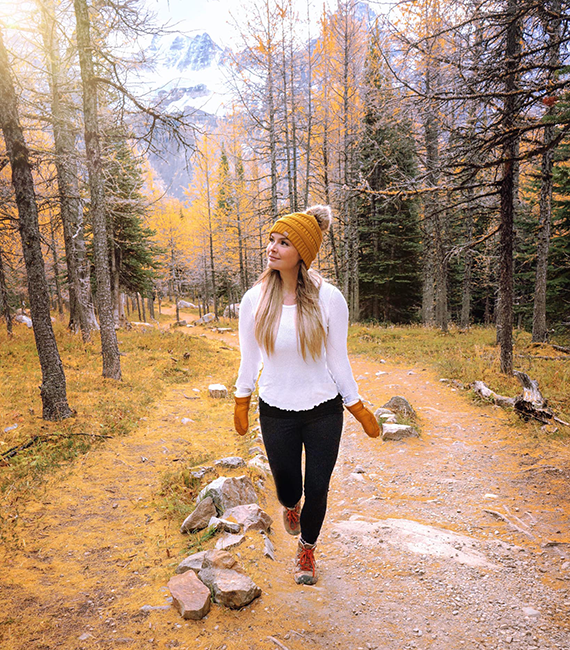




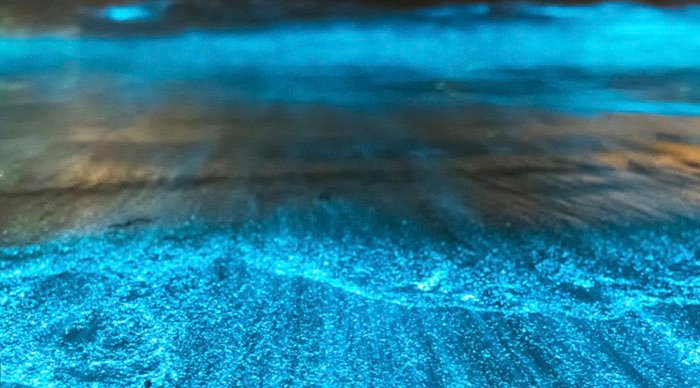
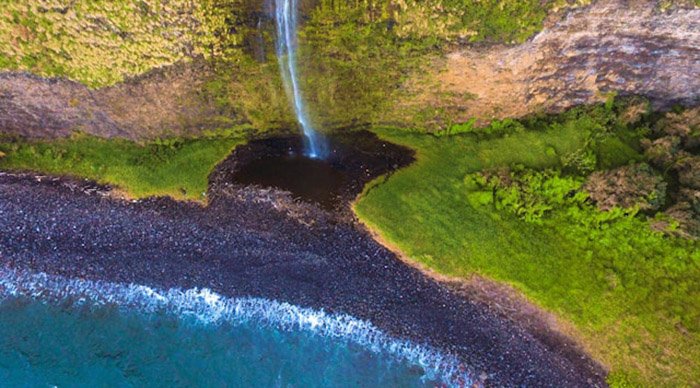
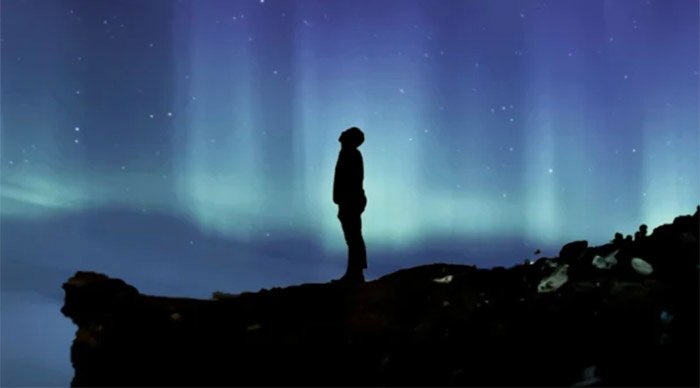





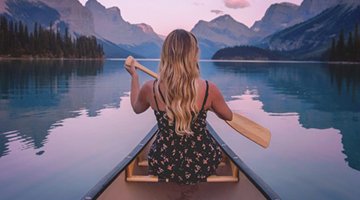

6 thoughts on “Hiking the Berg Lake Trail, Mount Robson Park: permits, campgrounds, reservations and more”
Welldone! Great read! Makes me want to hike it again!
Thanks so much Jeff! I have two more permits for next year- can’t wait either 🙂
is there any tenting allowed away from the reserve able sites? does all tenting need to be done in the sites provided?would like to hike in but looks like all reserved…..
Nope, unfortunately not. All tenting needs to be done on a tent pad on a reservable site. They do book up very very fast. You need to be ready to book the minute they go on sale later this year, for next year’s season!
Thank you for the lovely photos and info on this hike. I am making plans for a 2020 hike. Since July and August are all booked up, I’m left to choose from a late June or early to mid September hike. Can you tell me which time might be preferable weather wise? Do I need to worry about high water creek crossings on the trail?
I’d recommend September! June can still be cold here in Alberta and BC. You’ll be fine for water crossings as there are bridges in place.